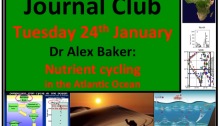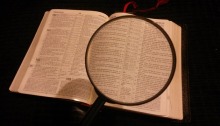Science Journal Club resources (1) – Nutrient Deposition in the Atlantic Ocean
In our most recent meeting, we read a paper about nutrient deposition in the Atlantic Ocean, and one of the authors came along to the session. I thought it might be helpful if I shared the paper we read, along with some background information, and the questions I wrote to go with it. Please feel free to use any of the resources linked to here.









